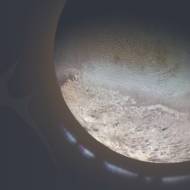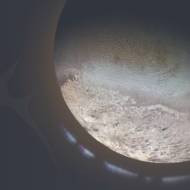
NASA’s Trident space exploration mission could carry Israeli technology to Neptune to determine if an underground ocean on its largest moon contains life.
By Yakir Benzion, United With Israel
When NASA’s proposed Trident mission to Neptune is launched in 2026, there is a good chance that Israeli technology will help uncover the secrets of Neptune’s unique and highly active icy moon, Triton.
The Weizmann Institute’s Prof. Yohai Kaspi is part of the proposed space mission team that hopes to investigate the existence and properties of Triton’s subterranean ocean as well as Triton’s youthful looking surface and unique atmosphere.
Triton is not just super cold, with a surface temperature of −235 degrees Celsius. It also has active geysers, meaning the icy moon has a heat source.
Kaspi and Dr. Eli Galant, the two Israelis on the Trident team, possess expertise in analyzing radio signals from distant spacecraft. The Trident spacecraft will be equipped with a special scientific clock they designed that is so accurate it will lose less than a second in 10 million years.
The clock will be built by the Jerusalem company Accubeat to withstand the rigors of space travel for at least 15 years. Kaspi and Galant will use the clock to calculate the properties of Triton’s atmosphere based on the Doppler displacement of radio waves beamed back to Earth from the spacecraft. The Israeli-made clock will assist them in measuring tiny oscillations in these waves.
Accubeat is already building a similar clock to be launched aboard the European Space Agency’s JUICE mission to the moons of Jupiter, set for 2022.
“This unique clock, developed for an ESA flagship mission, has raised interest with other mission teams. It is proof that Israeli industry and research have much to contribute to international space exploration,” said Israel Space Agency Director General Avi Blasberger, whose organization is providing research funding.
As one of four finalists from 22 proposals submitted to NASA’s Discovery Program, the Trident team and three other proposals will each receive three million dollars in the coming year to develop their plans before two are finally selected for missions. If all goes well, the interplanetary probe is due to be launched in 2026 for the multi-billion mile journey to the solar system’s third largest planet.
NASA is considering the mission to understand future pathways to habitable worlds that are at tremendous distances from the Sun. NASA’s Voyager 2 mission showed that Triton might have an underground ocean. Triton is being designed for a single flyby to map it, explore the active processes on the moon and determine whether the predicted subsurface ocean exists. If life does exist outside of Earth, it could be hiding in subterranean oceans flowing under the surface of icy moons, and Triton is one of the most promising candidates.
Triton is Neptune’s largest of 14 known moons and also an oddity because it orbits in the opposite direction of all the other moons of Neptune, leading some to think that it originated from outside our Solar System and may be an intruder trapped long ago by Neptune’s gravitational field.
If approved, Trident would be the first Earthly visitor to Neptune and its moons in over 30 years. Trident is intended to be smaller, cheaper, and shorter-term than the large missions that take off once or twice a decade. Unlike other large missions that are on the political or leadership level, the Discovery missions are all proposed, planned and selected by researchers.
“The launch date is fixed by the window of opportunity in which the configuration of the planets would enable a craft from Earth to reach Triton in just 12 years. The next window of opportunity will not come around until 2038,” Galant said.
JOIN ISRAEL’S MASSIVE SPRING PLANTING OF FRUIT TREES!
PLANT YOUR OWN FRUIT TREES IN ISRAEL TODAY!
Make the Land of Israel even more beautiful and fruitful while helping Israeli farmers to recover from financial losses due to coronavirus and destructive Hamas arson fires.
“…for the Lord your God is bringing you into a good land… a land of wheat and barley, vines, figs and pomegranates, a land of olive oil and honey”
(Deuteronomy 8:7-8)
CLICK TO PLANT FRUIT TREES IN ISRAEL TODAY!
Source: United with Israel

